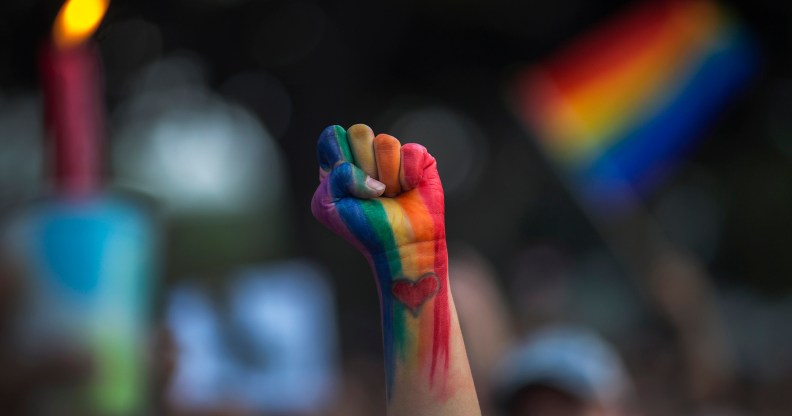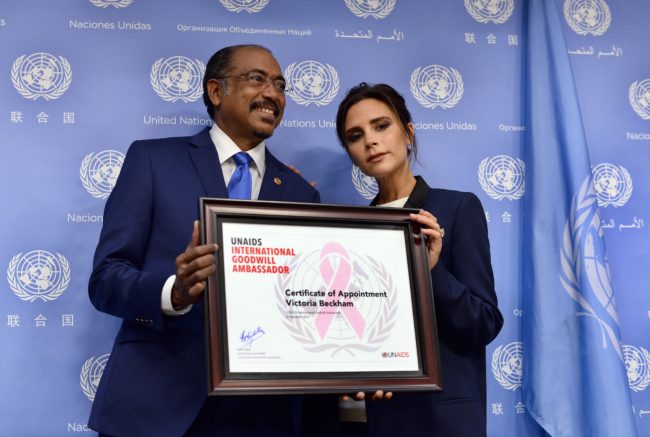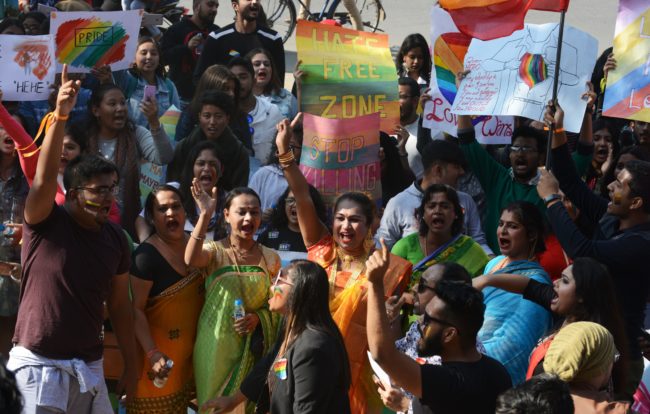Zero Discrimination Day 2019: Changing discriminatory laws

(Getty)
Today (March 1) marks Zero Discrimination Day, and UNAIDS is highlighting the need for reforms on discriminatory laws in UN countries.
Zero Discrimination Day is an annual day celebrated by the UN. It aims to promote legal equality throughout all UN member countries.
It’s the day to speak up and prevent discrimination. Campaigners use this day to stand up against laws that cause discrimination.
It was first celebrated on March 1, 2014, when launched by UNAIDS Executive Director Michel Sidibé.

Executive Director of Joint UN Programme on HIV/AIDS Michel Sidibe presents Victoria Beckham with a UNAIDS international goodwill ambassador certificate. (JEWEL SAMAD/AFP/Getty)
UNAIDS focuses particularly on combating discrimination against people living with HIV/AIDS.
One of many cases of HIV discrimination includes a man being refused dental care because he was HIV-positive in the United Kingdom. Last year, he spoke to PinkNews about his ordeal.
Campaigners in India especially use March 1 as an occasion to speak out against laws that make discrimination against the LGBT+ community more likely, such as Section 377 of the Indian Penal Code which made homosexuality illegal before it was decriminalised in 2018.
With the exception of the years between 2009 and 2013, gay sex had been illegal in India since the introduction of Section 377 in 1861. This made the decriminalisation on September 6, 2018, a momentous moment.

Years of campaigning eventually led to the decriminalisation of gay sex in India in 2018 (DIPTENDU DUTTA/AFP/Getty)
In similar discriminatory news, Kenya’s court ruling to decriminalise gay sex was recently delayed.
The culture of anti-LGBT discrimination could also be costing Kenya up to $1.3 billion a year, a new report claims.
According to the report, discrimination towards LGBT+ people could be costing the country as much as 1.7 percent of its GDP per year due to reasons such as healthcare costs, particularly from the prevalence of HIV/AIDS, tourism and discrimination in employment.
What is UNAIDS?
The Joint United Nations Programme on HIV and AIDS (UNAIDS) is the main advocate for global action on the HIV/AIDS pandemic.
Headquartered in Geneva, Switzerland, UNAIDS aims to inform, educate and eradicate discrimination against HIV/AIDS victims.
Watch the UNAIDS Executive Director talk about the need to act to change discriminatory laws:

